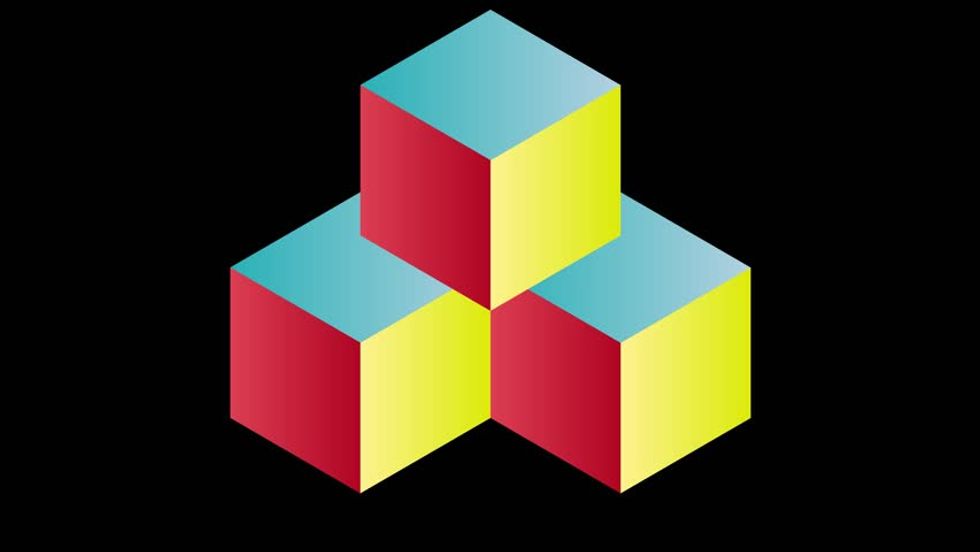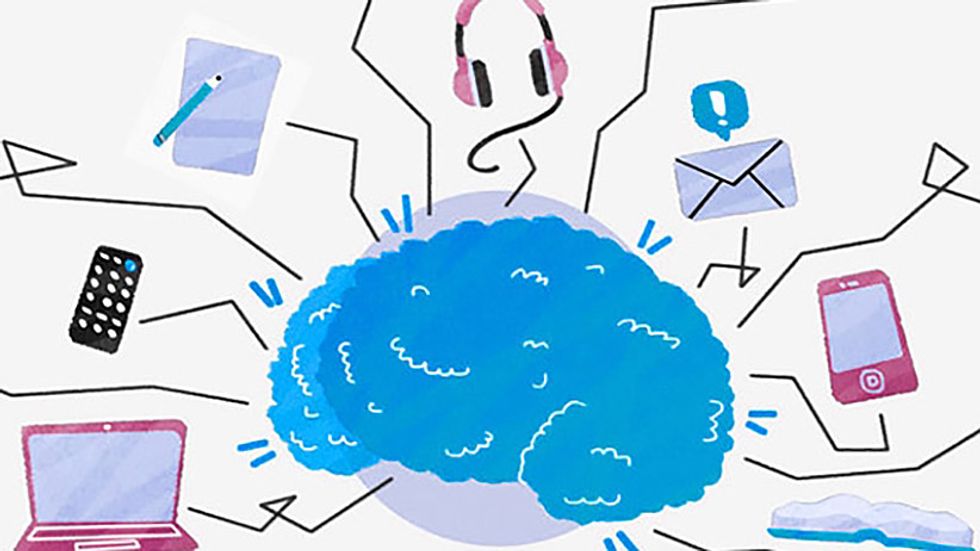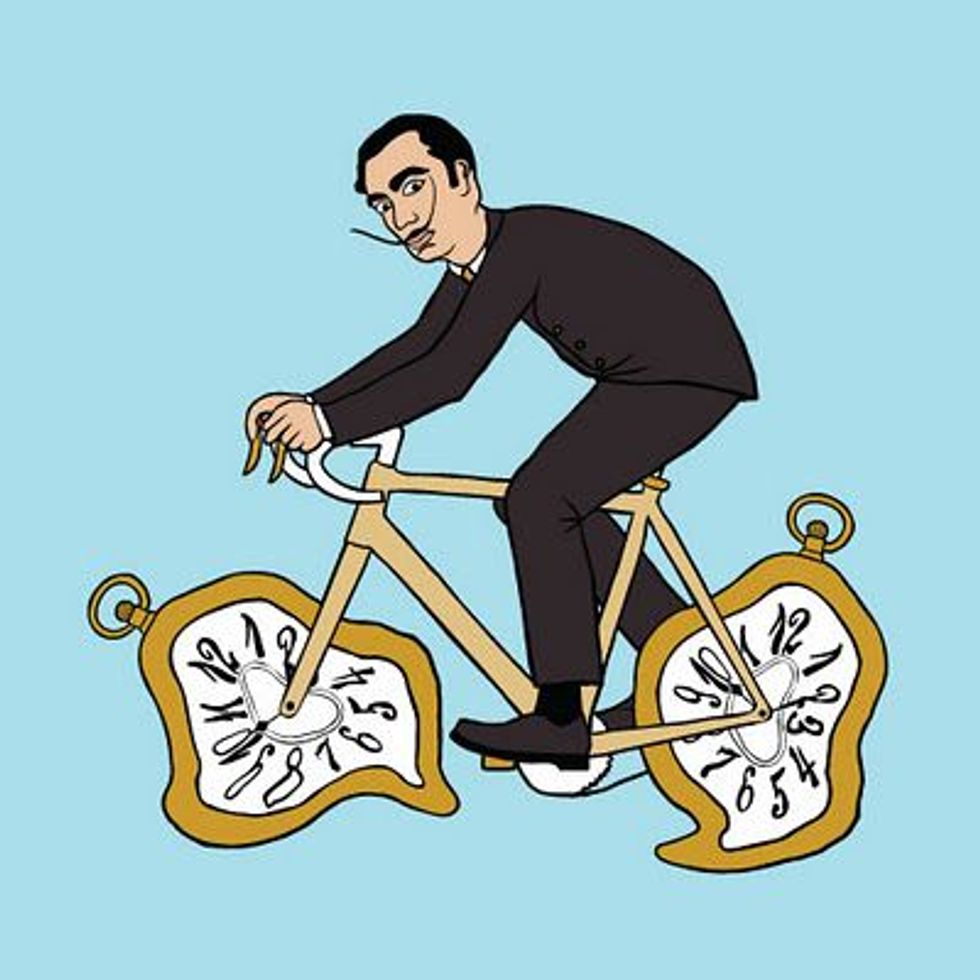Although many individuals in our generation of millennials have undoubtedly grown and thrived within a digital age and within a culture of new and positive personal discoveries, this doesn't mean it has no longer left any more room for improvement. Our daily tech-based habits may sometimes lead to negative habits and personal stress when we don't even know it. Here are five essential things we can do to live a little happier!
1. Stop comparing yourself to others.
Social media apps and websites such as Instagram, Snapchat, Facebook, Twitter, etc., make it easy to catch yourself comparing your life and outer appearance with other people’s posts you see. This can lead you to, unconsciously or not, falling into a continuous cycle of discontentment and insecurity.
Try giving yourself a break from social media and see if you feel any positive difference in the way you think and feel. It may help build your foundation of security and confidence within yourself and not from others.
We're supposed to not only love others but ourselves, too. No one is exactly the same. We're all our own unique selves, and as corny as it sounds trying to be someone else would only make us a carbon-copy. Copies are cheap and replaceable. Being proud to be ourselves makes us one of a kind and priceless!
2. Enjoy the moment without involving social media.
Even though this has been said many times before, the practice of putting your phone or camera away to just enjoy the moment does carry importance. When we try to capture every cool or exciting moment, half of our thoughts are caught up in trying to record the moment that we can’t witness, feel or take it in to its fullest extent. Sometimes we even waste so much time stressing over trying to capture the moment (good angle, lighting, deleting old stuff for more space on memory, etc.), we miss the entire thing itself!
In the beginning, trying to practice not capturing every moment will make you feel like you’ve missed out on archiving it, and the chance to relive it again. As this may be true, after time you’ll realize every special moment does not need to be physically archived. Knowing you’ve kept it in your memory with no one else to know kind of makes the moment even more special.
3. Put first things first.
Spotify, YouTube, Netflix, social life etc.–there are so many distractions that can get in the way of completing our responsibilities. It’s so easy to get pulled in to friends asking you to hang out or feeling like you’re going to miss out if you don’t participate in that recreational activity, but guess what? There’ll always be another recreational hangout or activity. There will.
If you have a hard time with your self-discipline and getting down to putting first things first, try to imagine that bad, icky feeling you get when you don’t finish the work you were supposed to do. You know that feeling. The one when you’re disappointed in yourself when you don’t stick through your goals, or the one when you’re maybe scared and worried the night–or even morning–before your assignment is due. That feeling really sucks. You don’t want to be that stressed, disappointed and worried guy.
Just find the empty spaces of time you have available to complete your responsibilities, prioritize them, then you can finally play!
Another important thing is making sure to make time for the important people in your life. This can be family, friends, significant others or even just spreading the kindness towards others you meet on any day. We never know when we're possibly spending the last time with those who are special to us, so making that simple hangout or phone call, and cherishing that time should be important.
4. Know when it’s best to focus on one thing at a time or multitask.
You’re probably listening to music and have a few other tabs open as you’re reading this. Anyway, even though it’s common to think multitasking will save more time on getting work done, it’s possible for the outcome to be the exact opposite.
Multitasking has been known to cause many negative effects on the brain. Multitaskers have been found to have increased levels of cortisol, the stress hormone, which can damage the memory region of the brain. This is why we may find ourselves feeling mentally exhausted from switching from one task to the other at the same time. Sometimes, our half-filled focus may leave us not completely knowing and understanding the breadth of the task we just did.
If you’re working on the computer, just immediately close all those different tabs on the browser. Only have the ones related to the same task open until you finish. Figure out how you work best–with or without music. Don’t be surprised if some of you find out you work faster without it! Then bam, onto the next task. You’ll feel better knowing you have one less thing to do now!
5. Train yourself to be more patient.
Aspects of patience can be seen through physical actions such as yelling at someone for taking a few seconds too long at the soda machine, or even mentally, like expecting to be a professional at a craft or sport within one week. These reactions and expectations are just not reasonable.
Snapchat stories, thirty-second commercials, fast food, one-day shipping, watching one-minute tasty videos instead of reading recipes–all these exciting and beneficial forms of instant gratification are accessible almost everywhere. What these great things also mean is that our minds have gradually been trained into expecting things to perform or arrive faster. So what happens when our shipping is delayed an extra day or two? Or when the video has to buffer for a few minutes? We get really upset! Like really, really annoyed.
Calm down. Take a step back and realize your first world problems are not worth breaking your screen or giving an unnecessary attitude to someone who had nothing to do with the problem. Try to use that buffering time to make some food or complete a different task before you watch the video. Plan to do something else while you wait during those delayed shipping days. Just occupy yourself with something else productive. If you really can’t wait for whatever it is you’re waiting for, then move on and forget about it. I repeat, move on and forget about it. Don’t waste time pouting when you have no power over the waiting process.
With so much access to seeing others and what they're doing through the internet or social media, it’s not hard to find yourself wanting to be successful right away. But it doesn’t come easy. When we find ourselves getting upset about not being as perfect or as skilled as we’d like to be, we need to understand and tell ourselves that our long-term goals take time to achieve through much more practice, hard work, time and experience. If we practice our patience and acceptance of who we are and of others, we’ll be able to work toward our goals a little more smoothly and peacefully. Being patient will allow us to handle our problems in a more wise and careful manner.
























